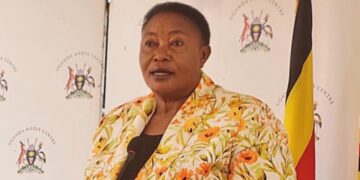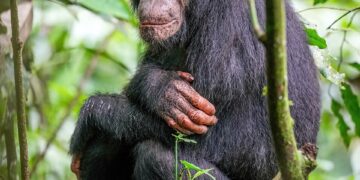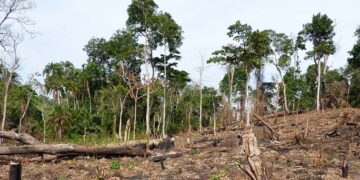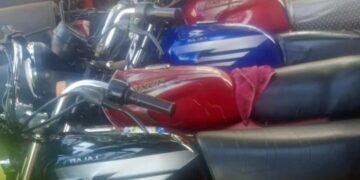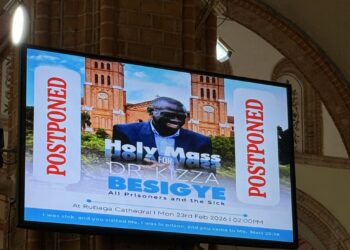By Our Reporter,
NATIONAL
The ministry of water and environment through the wetlands management department has launched the demarcation of the Rwambu-Mpanga wetland system and the demarcation exercise has started with Kitagwenda district in the South Western region. The ministry’s intervention follows the climate change due to local communities that have since been encroaching wetlands in the area.
The demarcation is pilot activity supported by Ecosystem-based adaptation (EbA) project and funded by the global environment facility through the United Nations Environment Programme UNEP. The project looks at wetlands and forests as areas of adaptation in relation to climate
The targeted wetlands for demarcation are Kanunka,Ruhagura which are all in Kabujogera town council and Kyarutanga which is a trans boundary wetland that separates Kitagwenda from Ibanda district. All these wetlands pour their waters in river Rwambu which is a tributary of river Mpanga which accommodates a hydro power plant.
While speaking at the launch of the exercise, water and environment ministry’s acting commissioner for wetland management Lucy Iyango, said demarcation of wetland boundaries was part of interventions by the government to secure lands in the country and restore their integrity. She explained that the demarcation of wetland boundaries would be done using pillars and Global Positioning System (GPS) locations.
She said that wetlands are being degraded at a high rate and have declined from 13-15 percent total coverage countrywide in 1994 to about 9.3 percent presently with the government targeting to increase this to 12 percent under Vision 2040.
Furthermore, Iyango called for a need to protect these wetlands because they moderate the climate and absorb carbon, regulating and purifying water and among others.
Anthony Kalyegira, the Kitagwenda district senior environment officer, said that the community has degraded the wetlands by carrying out activities like cultivation, planting Eucalyptus trees and brick making. He also said that in Kitagwenda, the level of destruction is at over 40 percent and called for urgent interventions to restore the integrity of the wetland ecosystems.
Some of the landowners bordering Kyarutanga wetland use it to make bricks, graze and get water for their animals, some use it as a source of handcraft like palm leaves to weave baskets and mats and many women depend on it to earn a living. Residents said the demarcation will now leave them stranded without earning income to sustain their families.
Iyango said that the residents need not to worry because those who have voluntarily left the wetland which is in the jurisdiction of the government will be supported by starting enterprises of their choice which are not harmful to the wetlands like fish ponds.
Meanwhile,the demarcation exercise will be done in nine districts countrywide which include; Kitagwenda, Kamwenge, Ibanda, Bushenyi and Isingiro in the South West while Sironko, Kalumbuli, Kapchorwa and Kween districts in the Eastern region.















